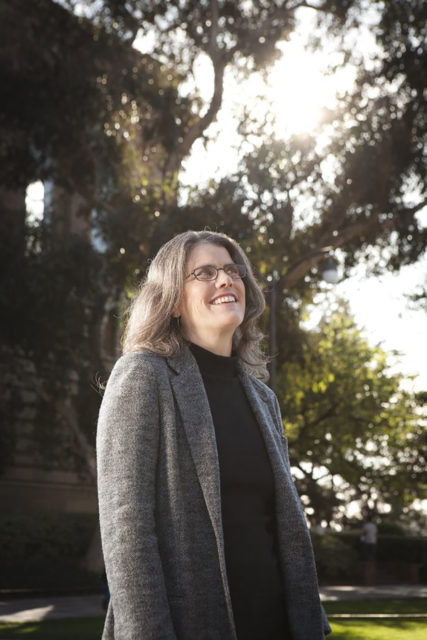This post was updated Oct. 11 at 9:51 p.m.
A UCLA professor won the 2020 Nobel Prize in physics after she helped discover a supermassive black hole at the center of the Milky Way, announced the Nobel Prize Organisation on Tuesday.
Andrea Ghez, a physics and astronomy professor, is the fourth woman to win a Nobel Prize in physics and the eighth UCLA professor to win the prize.
Ghez won alongside Reinhard Genzel, a professor emeritus at UC Berkeley, and Roger Penrose, a professor emeritus at the University of Oxford. Ghez and Genzel won for their discoveries of an invisible and heavy object at the center of the Milky Way, while Penrose won for his proof that the black holes are a result of the general theory of relativity, according to a press release from the Royal Swedish Academy of Sciences, an organization that helps determine who wins the Nobel Prizes in physics and chemistry.
The Nobel Prize is awarded annually for major contributions in physics, chemistry, medicine, literature, peace and economics.
Penrose will receive half of the roughly $1 million prize money, while Ghez and Genzel will each receive a quarter of the prize money.
Ghez leads the UCLA Galactic Center Group, a research group that focuses on the region at the center of the Milky Way, called Sagittarius A*, where the supermassive black hole is thought to reside. Ghez discovered the supermassive black hole in 1998.
This supermassive black hole is said to dictate the movement of the stars at the center of the Milky Way, according to the press release.
Ghez said in an interview with the Nobel Prize Organisation she was inspired to become an astrophysicist because of her passion for the universe.
“I think the questions of the universe just inspired me,” Ghez said. “For me it was really following my passions, my curiosity about the universe.”
Ghez did not immediately respond to The Bruin’s request for comment.
Ghez said she hopes that her winning the Nobel Prize will encourage young women and inspire diversity in the scientific community.
“To me it’s always been very important to encourage young women into the sciences,” Ghez said. “So, to me, (the prize) means an opportunity and a responsibility to (encourage) the next generation of scientists who are passionate about this kind of work.”

